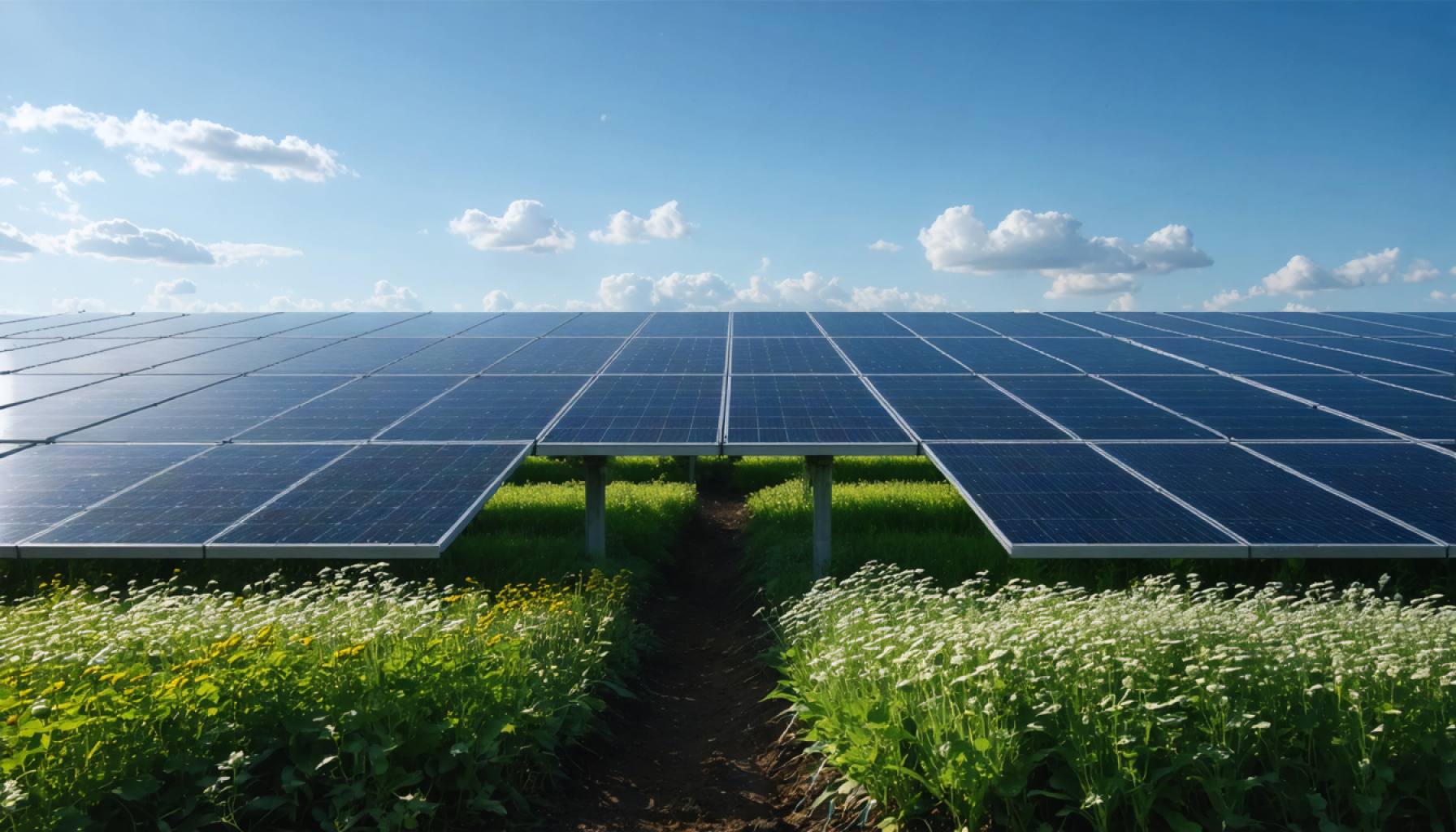- The renewable energy sector remains resilient despite political opposition and increased fossil fuel investments.
- Former U.S. President Donald Trump supports fossil fuel expansion, intensifying energy market volatility.
- ACEN Corp. aims to grow its renewable capacity from 7 gigawatts to 20 gigawatts by 2030 under Eric Francia’s leadership.
- BP shifts focus back to fossil fuels with a $25 billion deal in Iraq.
- Climate change science continues to drive forward innovations in clean energy.
- Renewable energy is viewed as a crucial path toward a sustainable, low-carbon economy.
- Despite challenges, the commitment to sustainability and clean energy persists.
Against a tumultuous backdrop of shifting political winds, the renewable energy sector stands unbowed. In recent months, efforts to promote cleaner energy sources have wrestled with fierce opposition led by influential voices advocating a return to fossil fuels. Illustrating this shift, fossil fuel investments have surged, casting a shadow over renewable energy companies whose stock prices have dwindled.
Former U.S. President Donald Trump has loudly championed increased fossil fuel extraction, a rallying cry echoed by supporters who energetically cheer slogans like “drill, baby, drill!” His administration’s heavy-handed approach grants unprecedented land and water rights to fossil fuel industries, declaring an open season on resource extraction. Predictably, this has stirred volatility in the global energy markets.
However, the heart of the renewable industry beats steadily on. A determined cohort of clean energy advocates remains adamant that the transformation toward a sustainable future cannot be derailed. ACEN Corp., under the leadership of President and CEO Eric Francia, exemplifies this steadfast resolve. Ignoring political bombast, the company continues its forward march, having already achieved an impressive renewable capacity of 7 gigawatts. Francia envisions expanding this to an ambitious 20 gigawatts by 2030.
Across the pond, London-based energy titan BP has pivoted back toward fossil fuels, recently signing a monumental $25 billion agreement to amplify oil and gas production in Iraq. Yet, amidst this backdrop of regression, voices like Francia’s declare that science remains immutable. The scarlet truth that climate change poses a non-negotiable threat propels efforts toward energy innovations that are quiet, but revolutionary.
Despite the investor angst and economic allure of fossil fuels, renewable energy remains a beacon of hope. For Francia and his allies, the mission is clear. It’s about embracing science, investing in the future, and upholding the inexorable shift to a low-carbon economy. For them, the energy transition is not just a possibility; it is an imperative.
The takeaway message is potent: Political headwinds may sway the market’s mood temporarily, but the dedication to sustainability is unwavering. Renewable energy leaders, undeterred by the cacophony, are hard at work to secure a cleaner, more sustainable future—because science commands, and reality demands it.
Can Renewable Energy Thrive Amid Political Chaos? Insights Beyond the Headlines
The Current State of Renewable Energy vs. Fossil Fuels
In the face of political and economic turbulence, the renewable energy sector stands resilient. Even as fossil fuel investments see a resurgence, renewable energy advocates continue to push for a sustainable future. Despite powerful opposition, the renewable energy industry is poised for growth, driven by the urgent need to address climate change.
Key Insights and Real-World Use Cases
1. Benefits of Renewable Energy: Renewable sources like solar, wind, and hydroelectric power present undeniable advantages. They provide cleaner, inexhaustible energy that reduces greenhouse emissions, crucial for combating climate change. According to the International Energy Agency, renewables accounted for nearly 30% of global electricity generation in 2020 (IEA).
2. Case Study – ACEN Corp.: Under Eric Francia’s leadership, ACEN Corp. showcases commitment and determination with a current renewable capacity of 7 gigawatts and ambitions to reach 20 gigawatts by 2030. This progression illustrates how companies can thrive even amid political adversity by committing to long-term sustainable goals.
3. BP’s Dual Strategy: While BP has expanded its fossil fuel operations, it also projects a significant role in the energy transition. The company aims to invest more in low-carbon projects over the coming decades, acknowledging both market forces and environmental imperatives.
Market Forecasts & Industry Trends
– Global Renewable Energy Growth: The renewable energy market is expected to grow at a compound annual growth rate (CAGR) of 8.4% from 2022 to 2030, driven by supportive government policies and increasing demand for clean energy (Grand View Research).
– Innovation in Energy Storage: The industry is seeing innovations in energy storage solutions, including advancements in battery technology, which promise to address the intermittency issues associated with renewables.
Addressing Controversies & Limitations
– Intermittency Challenge: One major limitation of renewable energy is its intermittent nature. Solar and wind power depend on weather conditions, which poses challenges in maintaining a consistent energy supply. Energy storage developments and an improved grid infrastructure are being pursued to mitigate these issues.
– Economic Competition: Fossil fuels are currently experiencing a renewed interest due to their established infrastructure and economic significance. However, long-term sustainability and the declining costs of renewables make clean energy increasingly attractive.
Actionable Recommendations
1. Invest in Renewable Energy: Encourage investment portfolios to include green companies, thereby taking active participation in the shift toward sustainability.
2. Support Energy-Efficient Technologies: At a personal level, consider incorporating solar panels or energy-efficient appliances at home to reduce carbon footprints.
3. Stay Informed and Engaged: Keep abreast of policy changes and support initiatives that promote renewable energy.
Conclusion
While the political climate may be volatile, the commitment to renewable energy remains strong. By prioritizing clean energy solutions and investing in sustainable infrastructure, we can ensure a brighter future. As the industry continues to evolve, embracing innovations and staying informed will be key to navigating the challenges ahead.
Suggested Related Links
– International Energy Agency
– BP
– ACEN Corp.
In the face of shifting political winds, the renewable energy sector continues to demonstrate resilience, driven by an unwavering commitment to a sustainable future. The path forward requires a collective effort to embrace science and innovation, ensuring that clean energy remains the cornerstone of our global energy strategy.
